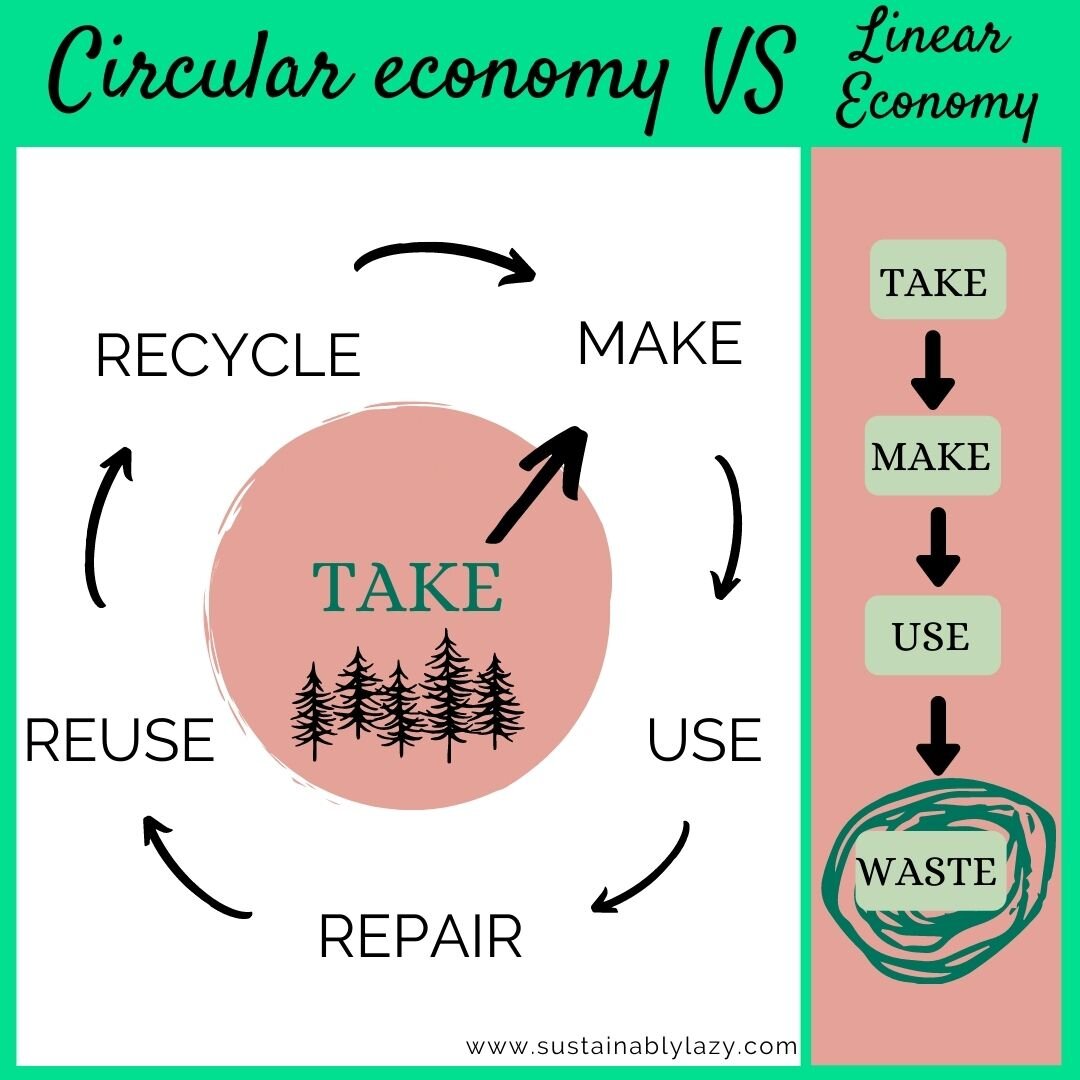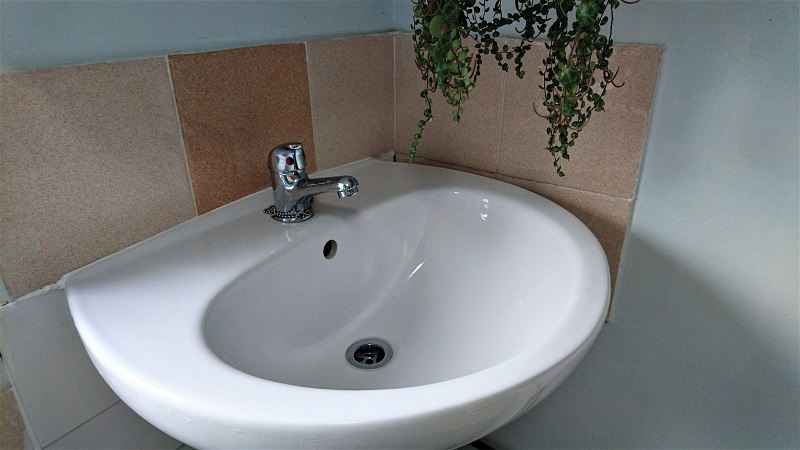Why Is Zero Waste And Sustainable Living Important - A Beginners Guide
If you’re on social media, chances are you’ve noticed people throwing around the phrases: “zero waste,” “eco-friendly living,” and “sustainable.”
You may be wondering if it’s just a trend - what are people hoping to achieve by getting involved?
Working towards a sustainable future is important because if we don’t stop using the planet’s natural resources at the current rate there won’t be any left for future generations.
There are lots of ways to get involved and to reduce your waste, but sustainability goes way above individual action.
There are a set of goals, known as the Global Goals, agreed by every country in the world. They aim to protect the planet and to improve the quality of life for every person living on it.
(Figure 1)
What does sustainable mean?
The most common definition of sustainable is to meet the needs of the present without compromising the abilities of future generations to meet their own needs.
The UN’s goals also aim to tackle a range of human rights issues, such as poverty, justice, and inequality of wealth. As an Oxfam report revealed this year, millions of people are trapped in extreme poverty while billionaires are getting richer every single day.
Sustainable development aims to create a world where everybody has their basic needs met and resources are used in a way that benefits the environment.
Sustainability can be divided into 3 principles (the 3Ps), but you will soon discover that the issues overlap, like in the above diagram:
Planet
Profit
People
What are the global goals?
Once known as The Sustainable Development Goals, the Global Goals give me hope. They remind me that there are people high up that care about a sustainable planet who have targets and a plan. And guess what? They are making incredible progress.
I first learnt about the Global Goals whilst training for a volunteer placement overseas.
Back then there were 8 goals, agreed by 193 world leaders, to reduce global poverty by 2015. Five years before the deadline, 1 billion people had been lifted out of extreme poverty. Isn’t that amazing?
Sadly there was still a long way to go. This time the UN created 17 global goals to create a world where everyone had their basic needs met, equal opportunities and a safe planet to live on.
The sustainable development goals are as follows:
End poverty in all its forms everywhere
Zero hunger (improve nutrition, promote sustainable agriculture)
Good health and well-being
Quality education and learning opportunities
Achieve gender equality
Clean water and sanitation for all
Affordable and clean energy for everyone
Decent work and economic growth
Industry, innovation, and infrastructure
Reduced inequalities
Sustainable cities and communities
Responsible consumption and production
Climate action
Life below water (conserve and use the oceans sustainably)
Life on land (protect and restore ecosystems, forests and halt biodiversity loss)
Peace, justice and strong institutions
Global partnerships for the goals
You can visit the (easy to understand) Global Goals website for information and updates on each goal. If it sounds overwhelming, choose the one you feel the most passionate about and the website will tell you how you can help.
Now I’m going to explain how the zero waste movement ties into sustainability.
What is the zero waste movement?
To put it bluntly, we take the earth’s natural resources, make products out of them and then throw them into landfill when we’re done.
The goal of zero-waste is to move away from a throwaway society by putting nothing into landfill and making future products out of materials that already exist (and clean energy).
If you’re working towards a sustainable lifestyle, you probably already have some inclination about the zero-waste mindset and what it involves. It’s less about buying eco-friendly stuff and more about learning to live with what you have.
Why is the zero waste movement popular?
You’ve probably heard a lot about zero waste on social media - the families keeping their trash in a jar. Bea Johnson brought the global movement into the spotlight by sharing how a zero-waste lifestyle simplified her life.
It’s pretty amazing, but very unrealistic. That sort of perfection is unattainable, but adopting an intentional lifestyle that works for your individual circumstance is much more possible.
Since over 11,000 scientists declared a climate change emergency, more and more people started following the principles of zero waste in an attempt to reduce their individual impact.
Is it possible to live a zero-waste lifestyle?
In 99% of cases, it isn’t possible to create no waste at all. Everything we consume uses resources to exist and to get to us, including our food and toiletries.
If you want to reduce your waste and be more sustainable, focus on reducing what you bring into your home is an easier place to start. Take it one step at a time and only buy reusable products when you need them.
Bea Johnson shared her 5 principles (which have been expanded into many more since) also known as the zero waste hierarchy:
Refuse
Reduce
Reuse
Recycle
Rot
Some examples of how the zero waste hierarchy works:
If you need something, buy it second hand.
If a possession breaks or tears don’t throw it in the bin - fix it.
If you can’t fix it find a way to recycle or compost it.
Say no to all single-use items - not just plastic. Paper towels, napkins and bags all come from trees and there is usually no way of finding out if illegal deforestation was used.
Basically, if you’re not going to keep it forever then refuse it.
Changing to a zero production mindset
Despite its demanding name and some rogue influencers giving the movement a perfectionist image, a zero-waste lifestyle focuses on intention and connection to the planet.
You see, zero waste isn’t just about the end of a product’s life. One could argue that is the least important part. Sustainable living involves not wasting the planet’s natural resources. That means not cutting down trees to make single-use paper bags, and not harvesting fossil fuels to produce clothes - even if you plan to keep them forever.
Zero waste gives off an anti-plastic vibe at times making it easy for companies to avoid changing their practices by changing their packaging. Deforestation is a major cause of climate change.
The only true way to be “zero waste” is to stop buying what you don’t need - stop overconsuming (obviously keep buying the essentials and try to be realistic about all of this). When you do shop, be intentional about your purchase.
Environmental justice is a crucial part of zero waste
Sustainable living is about protecting everything that lives and breathes on the planet - respecting the biodiversity and understanding that all people have the right to a safe and fair life.
You can’t tick every ethical box so you have to decide what your values are. In my book, human rights are more important than eco-friendly packaging so I will always choose the organic, Fairtrade bananas - even when they come wrapped in plastic (a perfect example of why system change is more important than individual change).
If we don’t acknowledge our white privilege and use it to advocate for the protection of people in our supply chain, we are only fighting for a sustainable world for people with the same privileges as ourselves.
What is a circular economy?
Think back to earlier when I mentioned the 3Ps. The third principle of sustainable development, profit, has a very important role in creating a sustainable future.
It is estimated that by 2050 we will need 3 planets worth of resources to sustain our current lifestyles. This is because we are following a linear economy: make, use and dispose of. Many of the man-made products we waste are toxic and do not biodegrade, making water unsafe to drink and soil infertile.
We can change this if we move to a circular economy. The key is to reuse and recycle everything - to regenerate the Earth. All companies must find a way to reuse resources that already exist, instead of harvesting new ones. A simple example of this is recycling their old products into new ones at the end of their life.
A circular economy is a lot like the Earth’s natural systems, for example, a flower grows from the soil, uses water and sunlight, dies, and decomposes back into the soil creating nutrients for other plants.
It’s not going to be an overnight change and industries will have to get creative to discover methods that mimic this regenerative process. But it is absolutely essential that we create a sustainable, resilient economy if we have any chance of reaching zero net carbon emissions by 2050.
There’s a lot of work to be done so the sooner we get governments and corporations on board, the better chance we have of creating a safe, sustainable world. Practising a sustainable, zero-waste lifestyle (if you are able) is a great way to rebel against the linear economy model and show corporations that you want to be part of a circular economy.
But what’s more important is telling them. Share your worries and your ideas with them. Let brands know how they could improve.
Are you new to sustainable, low waste living or have you been doing this for a while? Share your best tips in the comments below.
If you found this post informative, please tap the share button below. As a work at home mum who is boycotting Amazon and avoiding annoying pop-up ads (the usual ways to make money from your website), every share means the world to me. You can also support my content by buying me a coffee or following me on Instagram. Thanks for being here - Sophie <3
TAP TO SHARE:














